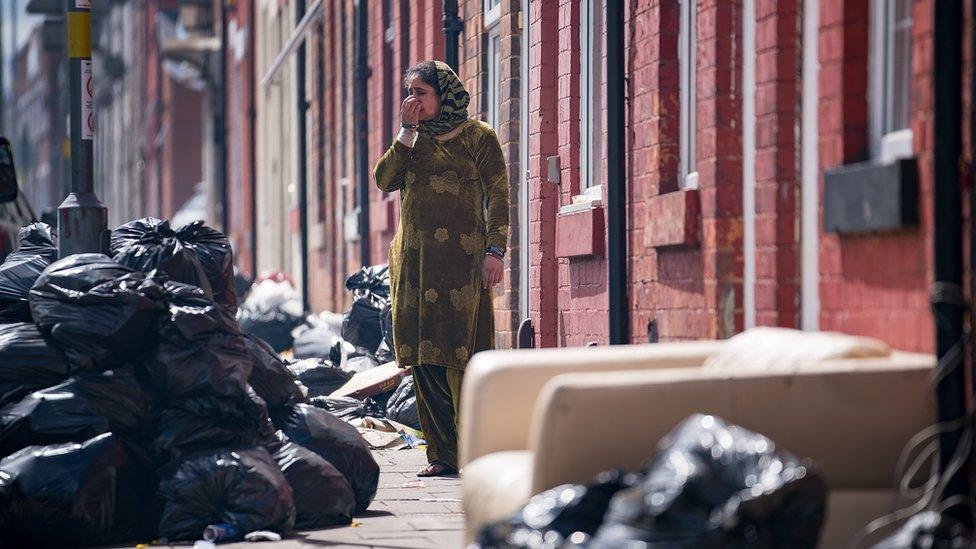Birmingham bin strike: Halted recycling costs council £300k
- Published
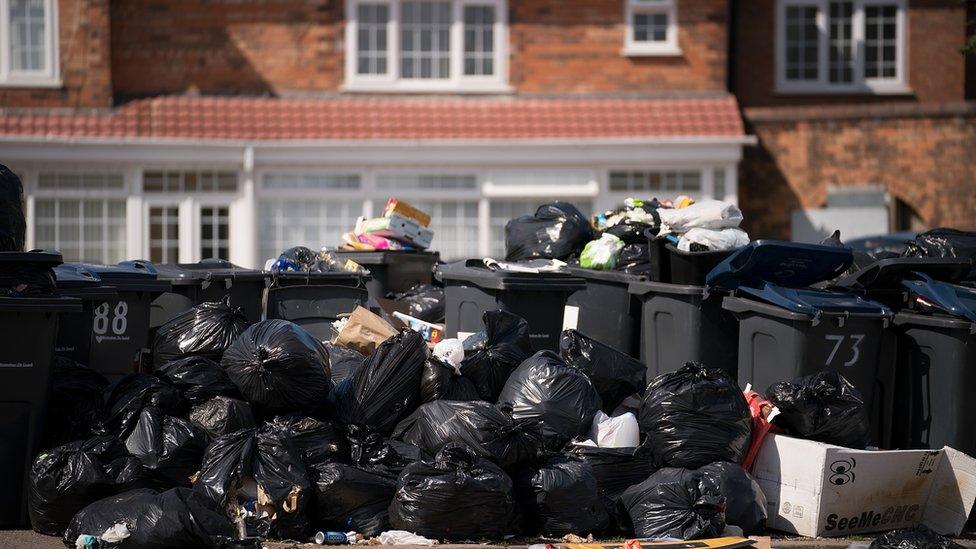
The strike began on June 30 and union officials say it could go on all year
The failure to recycle waste during Birmingham's bin strike has cost the city council £300,000 in lost income so far.
The authority has been collecting all waste together, external to clear the streets as rubbish continues to mount up.
Earlier this week, John Clancy resigned as council leader following criticism over his handling of the dispute.
On Monday, refuse workers return to the High Court claiming the council has acted illegally during negotiations.
Workers began their strike on June 30 after the authority announced redundancies and changes to working patterns.
Since then, it has employed agency crews to clear the backlog, visiting each of the city's wards once every four weeks.
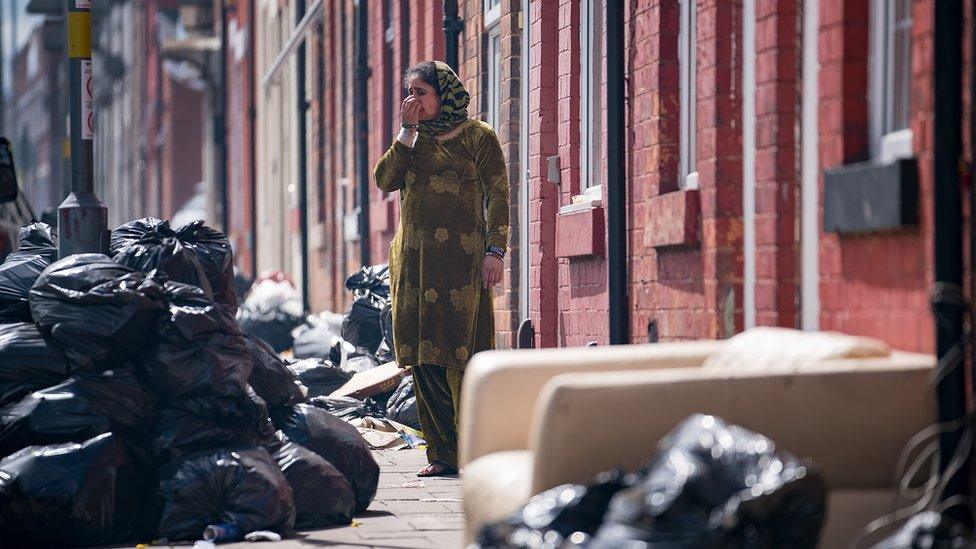
Rubbish has mounted up on the city's streets
Councillor Lisa Trickett said the council collected 697 tonnes of paper and cardboard from July 1 to August 27 this year - compared to 3,853 tonnes during the same period in 2016.
The authority is paid £95 per tonne for the paper, making the total estimated loss £299,823.
Councillor Alex Yip described it as a "ridiculous situation" and said the failure to recycle was having a "substantial impact on the city".
In response, Councillor Ian Ward, interim leader of Birmingham City Council, said: "The current dispute is not in the interests of the council or the residents of the city of Birmingham, and what we all have to do is resolve that dispute."
Birmingham already has one of the lowest rates of recycling in England, coming 341st out of 351 authorities.
The city council has already revealed it is costing £300,000 a week in contingency plans as the strike continues.
- Published11 September 2017
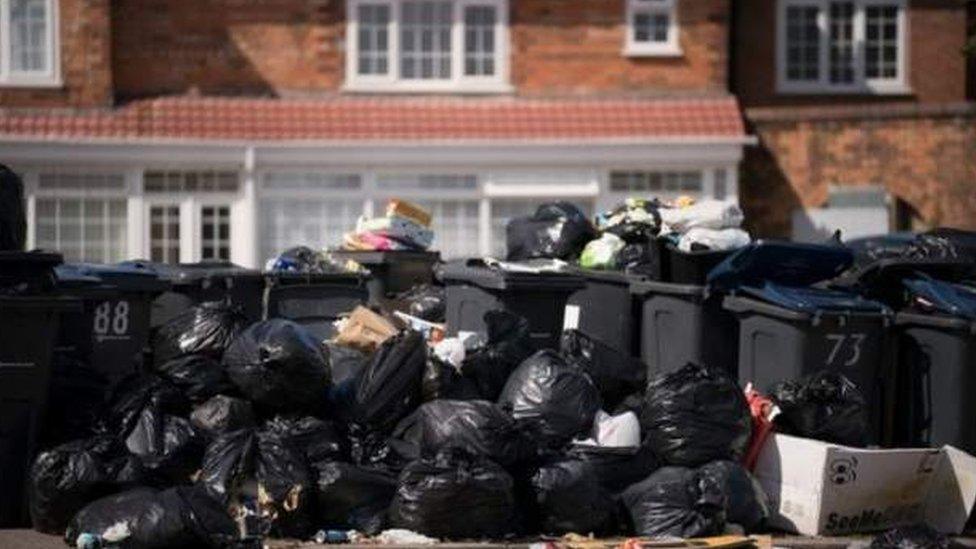
- Published10 September 2017
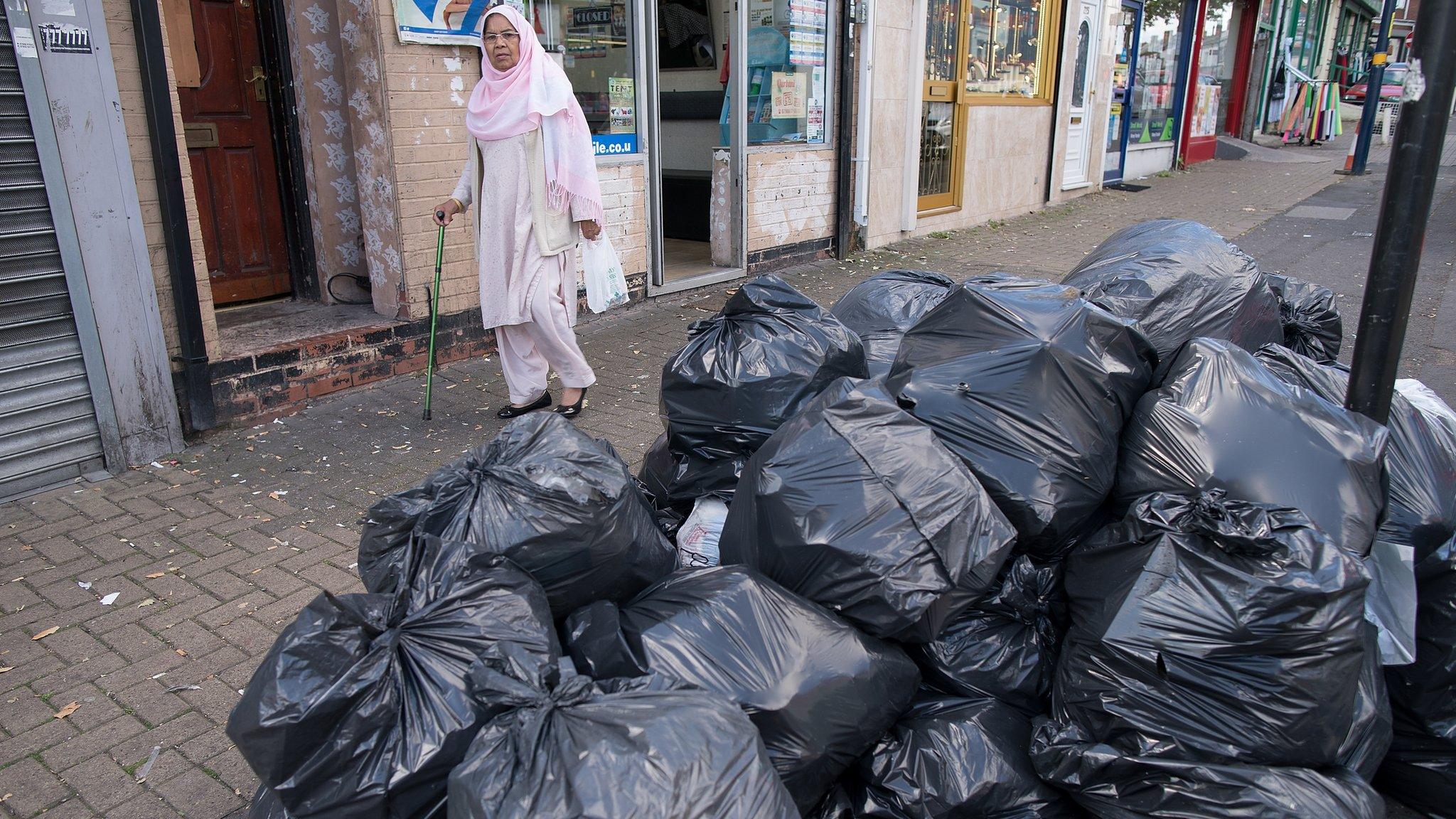
- Published21 September 2017
